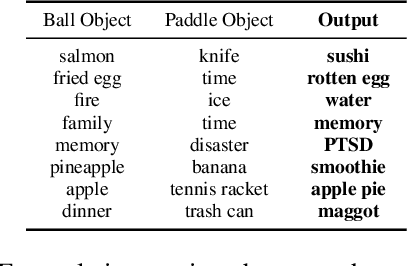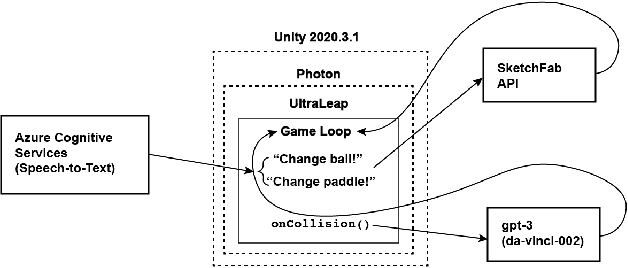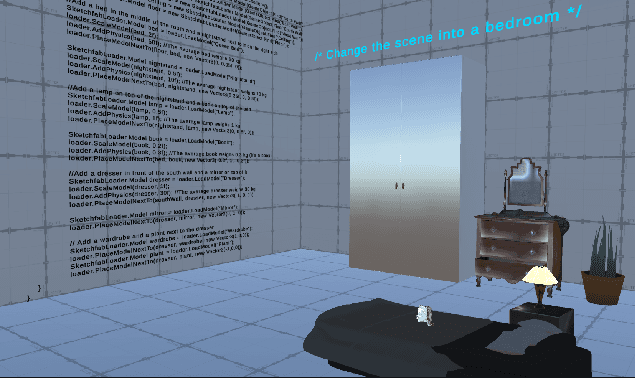Steps towards prompt-based creation of virtual worlds
Paper and Code
Nov 10, 2022



Large language models trained for code generation can be applied to speaking virtual worlds into existence (creating virtual worlds). In this work we show that prompt-based methods can both accelerate in-VR level editing, as well as can become part of gameplay rather than just part of game development. As an example, we present Codex VR Pong which shows non-deterministic game mechanics using generative processes to not only create static content but also non-trivial interactions between 3D objects. This demonstration naturally leads to an integral discussion on how one would evaluate and benchmark experiences created by generative models - as there are no qualitative or quantitative metrics that apply in these scenarios. We conclude by discussing impending challenges of AI-assisted co-creation in VR.
 Add to Chrome
Add to Chrome Add to Firefox
Add to Firefox Add to Edge
Add to Edge